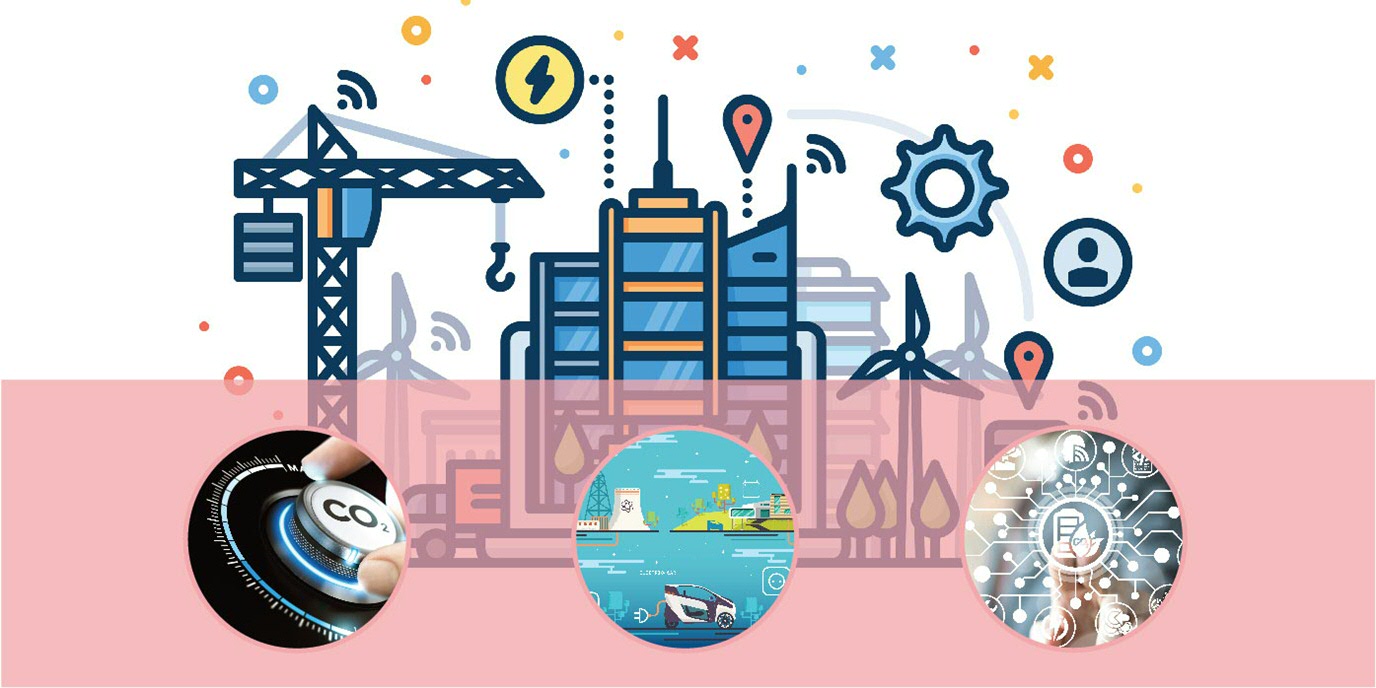Decarbonization, energy transition and system integration

Overview
Society faces the urgent and tremendous task to limit greenhouse gas concentrations in the atmosphere so that future generations can still live in an agreeable climate. Fortunately, we have many solutions ranging from energy efficiency, wind turbines, solar panels, nuclear, biomass, to CO2 capture and storage, even capturing CO2 from the air, and many more. However, it is not evident at all which mix of solutions we should apply, when, and how. All solutions have their own benefits and drawbacks.
Energy system modelling and scenario analysis are crucial research methods to understand how the energy system interacts with our environment and society. Only with an in-depth understanding from a multi-disciplinary perspective, it is possible to design successful strategies to guide the energy transition.
Traditional energy system modelling and scenario analysis remains necessary for the identification and evaluation of energy transition pathways. Well-known tools applied in these types of analyses are bottom-up models with explicit representation of technologies but limited coverage of the economy, top-down models with limited technological representation but full coverage of the economy. At IREES, we are enhancing these models with innovative elements and apply them to support the energy transition. For example:
-
The integration of intermittent renewable resources into the electricity system, and the design of smart electricity grids gets a lot of emphasis in energy system research. We are enhancing this type of modelling with big weather datasets from global circulation models in close cooperation with meteorology institutes. Also, we aim to identify smart solutions to integrate electricity, heating and passive (i.e. efficiency improvement) systems. System analysis research can also look in more detail for solutions which consist of smart combinations of long-term investment planning and short-term strategies to balance supply and demand of energy.
-
Energy infrastructure development is represented explicitly in energy system models. It is essential to obtain insights into robust pathways of infrastructure development. Not only the built out of electricity grid is of importance, but also expansions of heat networks, and transport of clean gaseous or solid energy carriers, and CO2 networks are required. Well-founded infrastructure development plans can facilitate the energy transition, especially, because large-scale projects with long planning horizons and life times are involved.
Theme contact person:
Prof. dr. ir. M.A. (Machteld) van den Broek
Projects related to this theme
ESTRAC IESA
ESTRAC IESA (Integrated Energy System Analysis) provides the IESA energy system modeling framework to bridge major energy modelling gaps. This project focuses on the state of the art energy system modelling development with fine temporal and technological resolutions by employing optimization, simulation, and CGE methods >>> read more.
Contact person: A.P.C. (André) Faaij
ENSYSTRA
The ENergy SYStems in TRAnsition Innovative Training Network: is the unique interdisciplinary Marie Skłodowska-Curie Innovative Training Network, funded by the Horizon 2020 Programme of the European Commission, targeting solutions for integrated energy systems transition.
Contact person: D. (Dirk) Kuiken
STORE & GO
Evaluation of energy storage for increased Renewables penetration with focus on Power to Gas. KSW Biomassa Colombia "Towards a long-term science and innovation collaboration between Colombia and the Netherlands in Biomass Valorisation”.
Contact person: A.P.C. (André) Faaij.
PhD projects
-
ESTRAC: Integrated Energy System Analysis | Amirhossein Fattahi.
-
IESA-ESTRAC (Integrated Energy System Analysis within the Energy System Transition Center) | Manuel Sanchez Dieguez.
-
Modelling the Whole North Sea Energy System |Rafael Martínez Gordón.
-
Offshore Advanced Renewable Energy Technologies, Learning Curves and Roadmaps | Srinivasan Santhakumar.
-
Optimization of micro grids with renewable energy electricity generators | Emilia Come Zebra.
-
Robust integrated energy infrastructure planning | Sybren Couwenberg.
-
Shaping Energy Storage Development in the Dutch Electricity Market | Ahmad Mir Mohammadi Kooshknow.
-
The feasibility of a Paris-proof European power system | Rebeka Béres.
Previous PhD projects
- Community Innovation for Sustainable Energy. Aligning technological and societal innovations | Esther van der Waal.
- Estimation of bioenergy potential in China | Bingquan Zhang.
- Potential and improvement of LNG liquefaction facility and distribution infrastructure | Jinrui Zhang.
- The potential and limitations of decarbonizing the Oil Industry | Edgar Yáñez Angarita.
| Last modified: | 05 June 2024 4.08 p.m. |
